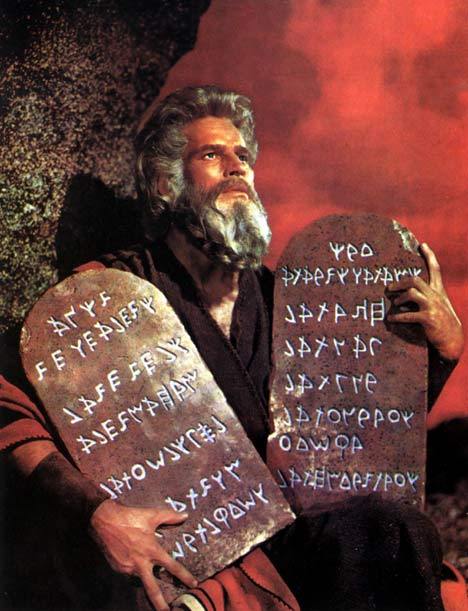Beyond the Face of God, a sermon at Temple Emunah by Rabbi Stephen C. Lerner
I want to thank Rabbi Lerner the younger for giving me the opportunity to talk to
this wonderful congregation on my birthday. My wife and I have enjoyed our visits
here. It is, as one Rabbinical Assembly official told me when she heard that our son
was to be the rabbi here, it is one of the best shuls in the country.
I am delighted that this week’s Torah reading is Kee Tisah for it is filled with
meaningful matter. I want to talk about a high point of the parashah—Moses’ desire for
an even more intimate relationship with God.
In Shemot 33:11 we read: “The Lord would speak to Moses face to face as one person
speaks to another…” But Moses is dissatisfied with this real bonding; he wants more.
He cries out to God;(Exodus 33:18) “Oh, let me behold your presence.”

and understand the essence of the Blessed Holy One. God’s answer is crisp and clear,
cutting off any possibility of fulfilling this over-reaching request.
(Exodus 33:20 “You cannot see My face for no person can see My face and live”
Thus we have the same word used somewhat differently. God has allowed Moses
a certain level of connectedness, thus the phrase panim el panim ( face to face), an
idiomatic expression for a close relationship, but panai alone means My face, My
essence—that can never be understood by you.
Perhaps to console a squelched Moses, God tells him that He’ll allow Moses a hint
of the Divine; Moses will be permitted to experience God’s wake, so to speak, the
after-effects of His mysterious passing by. And Moses learns that what he can really
know of God is His relationship to the world as a God of compassion and justice.
Throughout, our tradition, wise men have warned us not to replicate Moses’
unsuccessful quest. We learn that the reason the Torah begins with a bet 
you that our inquiries should approximate the shape of the bet. Thus we should
not wonder what is above, or below or behind us but be like the bet, closed on
three sides but open facing the next letter; we too should only worry about what is
straight ahead.
One of the great Talmudic stories reflects this attitude. It is about four sages who
entered into pardes, paradise, an orchard, understood as mystical speculation. The
result? Ben Azzai committed suicide, Ben Zoma went crazy, Aher (Elisha ben Abuyah)
became a heretic and only Rabbi Akiva 
vaerage of .250 is not very good in baseball or in our tale.
But did Rabbi Akiva really come out whole? This great genius at creative
interpretation, this man who stood four square against capital punishment, was also
the man who, to our and the tradition’s embarrassment, proclaimed Bar Kokhba, the
great leader of the final war against Rome, as the messiah. The tradition has tried to
play down this egregious error of the great sage and excuse it, but the fact remains
that it was a serious mistake both religiously and politically,
This final rebellion ended tragically, terribly in 135 CE. The rebels were crushed at
Betar and Jerusalem became Aelia Capitolina, a new Roman city closed to Jews.
Emperor Hadrian outlawed Judaism and broke on the rack those,like Rabbi Akiva,
who persisted in teaching Torah despite the ban. While the ban on Judaism was
lifted within a few years, the ban on adult circumcision remained. Roman scorn for
Jews grew and the Jewish community turned inward increasingly having as little to
do as possible with Gentiles and Gentile products.
Why had not Rabbi Akiva followed the example of the great mentor of his mentors,
Rabban Johanan ben Zakkai? Caught up in the first war against Rome in 70 CE, that
great sage was smuggled out of the besieged Jerusalem in a casket but instead of
burial, his casket was brought to 
opened and Johanan ben Zakkai emerged haling the general as emperor. Evidently
the general liked what he heard and acceded to the rabbi’s request, giving him the
town of Yavneh as a place to build a yeshiva.
The Temple was destroyed, Jews carried off into exile, but Judaism would continue. Johanan ben Zakkai saw things
realistically; he was not bedazzled by messianic dreams. Rome could not be beaten but the Jewish people and Torah would live on.
There are still some cabbalists and wizards of gematria today who seek to
uncover secret wisdom, to explore the mysteries of the emanations from God to
uncover supposed secrets that are best the province of God. I wish them well in
their harmless pursuits.
Much more troubling are those throughout Jewish history and even today
who, while they recognize that they cannot, as it were, see God’s face, , nevertheless
seek to uncover God’s plan for the appearance of the messiah and the realization
of the Messianic age. Throughout history, there have been messianic enthusiasms,
which have resulted in disappointment, at the very least, or disaster at the worst.
One of the ironies of the twentieth century is the large number of Jews, who
having rejected Judaism, transferred their allegiance to Soviet Communism and,
unconsciously taking from the Judaism they had spurned the notion that the world
was perfectible, decided that communism was the way to the messianic age .These
folk were like those who continued to follow the 17th Century’s Shabbetai Zevi,
our history’s most popular false messiah, despite his apostasy. Thus Russian Jewish
communists and some of their American counterparts like the secretary of my
shul in 1970, put their trust in Stalin and his successors despite his pact with Hitler
despite the suppression of virtually all Russian Jewish life, despite the invasion of
Hungaryi in 1956 and Czechoslovakia in 1968. Amazingly, there were still Jews
who thought that Communism would bring the messianic age.
Messianic expectations are very much alive in some communities of serious,
observant Jews. While many in Habad are open about their rebbe being the
mashiah, some experts feel that many other quiet Habadniks also privately hold that
belief, expressing it only to co-messianists. I think that most of us view this belief
as a strange quirk in people who are seriously dedicated to performing deeds of
gmilut hasadim, deeds of loving kindness. While it is a serious theological error,
most Jews pay little attention to it.
Much more significant and potentially troubling is the messianism of the
religious Zionist movement to which most of the West Bank settlers belong.
To religious Zionism Israel is reshit tsimat geulatenu ,the beginning of
the sprouting of our redemption, a clear messianic phrase. These words are
proclaimed in the Israeli rabbinate’s official prayer for the State of Israel, which we
recited a few minutes ago. 1967 gave the State of Israel and therefore, the Jewish
people, the entire Holy Land, bringing us closer to the messianic age in the religious
Zionist worldview.. Consequently, it is inconceivable to most religious Zionists that
any of God’s realized bequest to Israel be transferred to the Palestinian Authority,
even for the sake of a lasting peace.
To their credit, young religious Zionists, fiercely patriotic, hold a significant
number of officer positions in the Israel Defense Forces. At the same time some
West Bank rabbis have preached to these men that they must refuse any command
to remove settlers from any settlements should a diplomatic agreement between
Israel and the Palestinian authority ever be reached. There is a fear that some of
these officers may place these supposed Torah directives above the directives of the
State of Israel causing a true crisis in the country.
The Israeli government is aware of this risk. Thought has been given to
employing the Israeli police were such a time to arrive because few of them are
observant, dati’im, there being no heter (religious permission) to do police work
like issuing tickets, on Shabbat. But all agree that protecting the State of Israel
overrides Shabbat.
With what is going on the Near East, it is a true stretch to hope that the
government of Abbas on one side and that of Netanyahu, Lieberman and Yishai on
the other are likely to work out an agreement any time soon although an agreement
was apparently pretty close a few years ago. But what if? How will Religious
Zionists in the army respond? That movement is sadly caught up in a messianic
morass that has bedeviled Judaism throughout the ages.
Only God knows the identity of the mashiah, and the time and place of
his or her appearance. Beginning with Moses, Jews have tried to overreach
themselves, to uncover that which cannot be known—the full nature of God, His
intentions, His plans, His actions.
The fear today is that messianists, so sure that a new era is upon us, will err
as Rabbi Akiba erred. While I am convinced that the future of Israel would not be at
stake, the loss of an opportunity for a real peace would be a tragic blunder.
The best of our sages urge us not to force the end, to leave God’s mysteries to
God.
Let us heed the faith of Rambam—
I believe with perfect faith in the coming of the mashiah and though he tarry I still
await him.
Perhaps righteous living will persuade God to send the messiah but we are well
advised to remember that God’s decisions are best left to God.
This post has been contributed by a third party. The opinions, facts and any media content are presented solely by the author, and JewishBoston assumes no responsibility for them. Want to add your voice to the conversation? Publish your own post here. MORE




